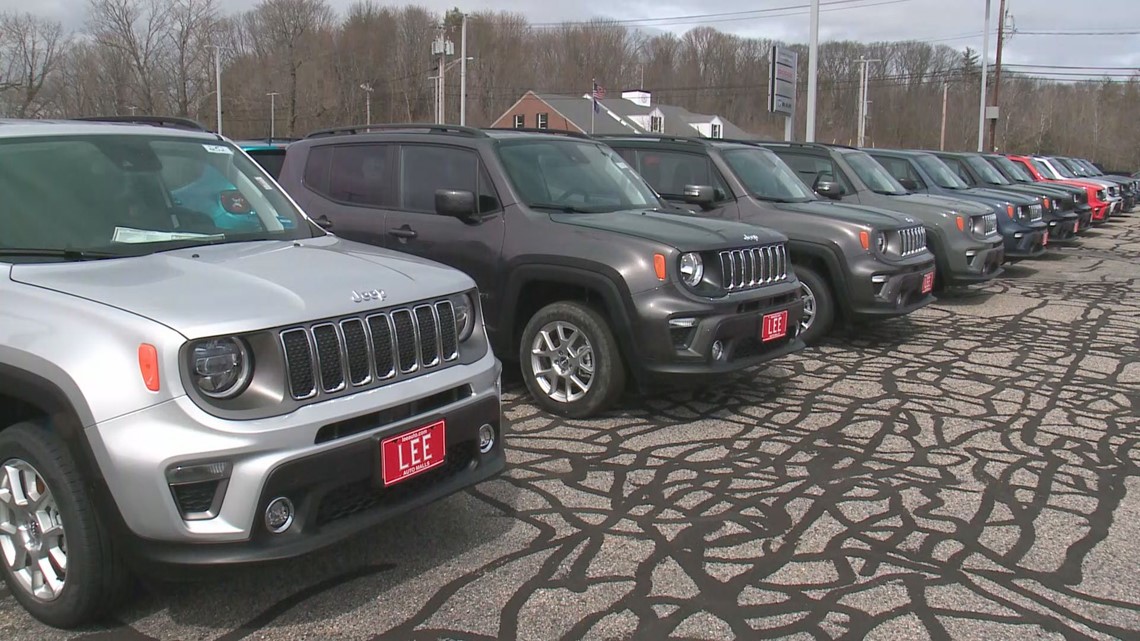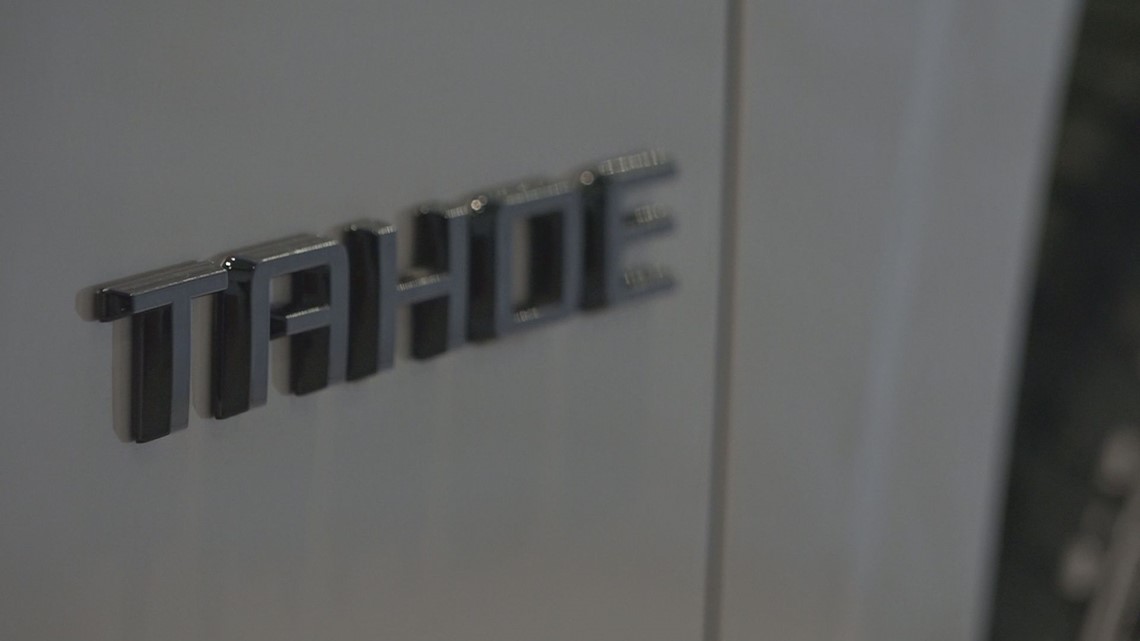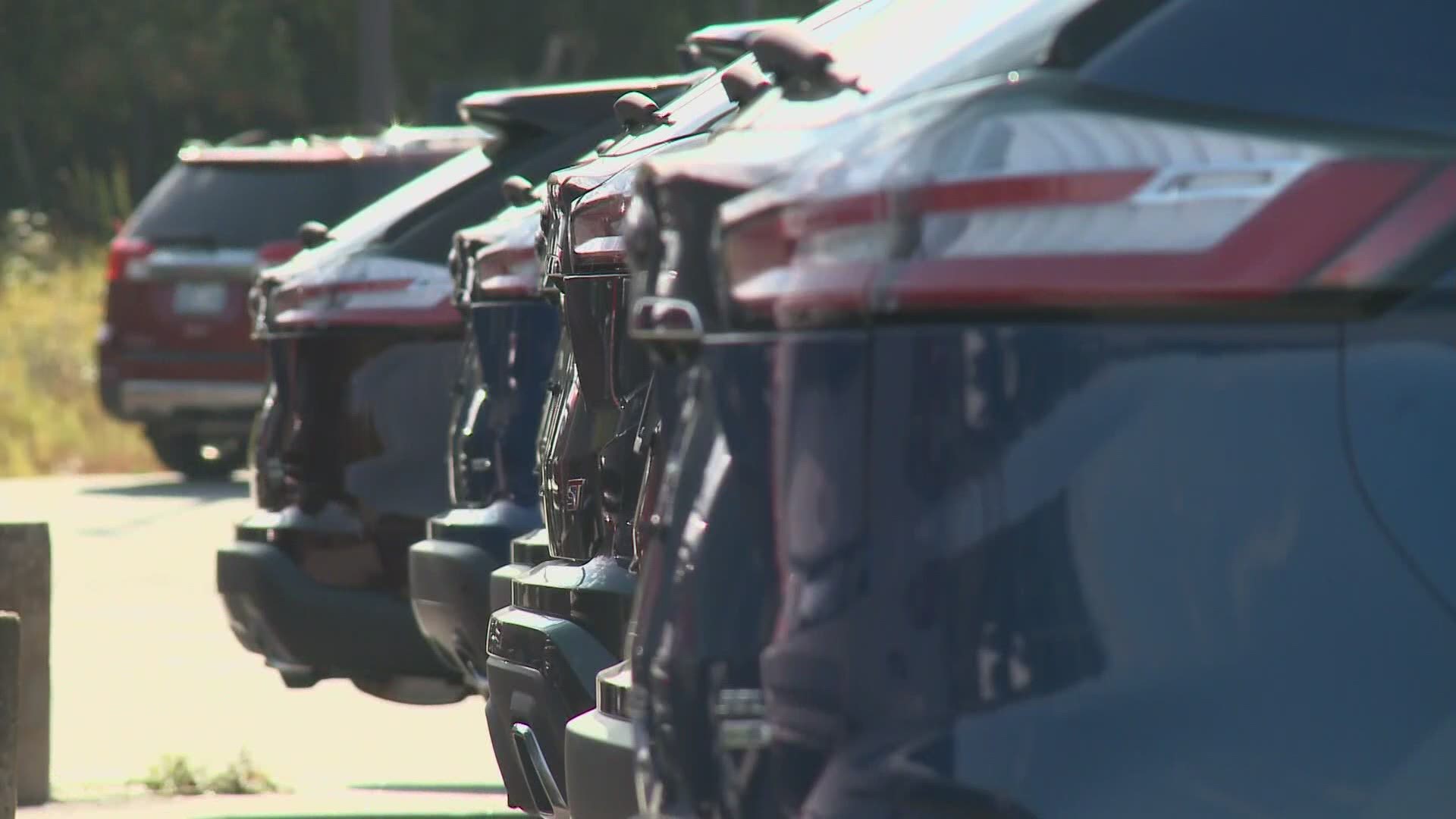MAINE, Maine — If you drive by any car dealership in Maine, you'll obviously see cars, but not as many as usual.
“Because inventory is low, the fact is sales have been super brisk in every dealer, really in the whole country," Adam Lee, Chairman of the Board of Lee Auto Malls said.
When the COVID-19 pandemic first came to the country and to Maine, people began working and staying at home. That drove up the demand for smartphones, electronics, appliances, and other technologies—but few people were buying new cars.
As a result, car manufacturers pulled their order requests from the companies that make and sell the required microchips that power navigation, fuel control, traction control, and more.
“These cars now, they’re computers on wheels, they have many, many chips," Lee added.
Nuri Emanetoglu, an Associate Professor of Electrical and Computer Engineering at the University of Maine, said COVID-19-related closures already impacted the supply chain of microchips before the car dealers pulled their orders.
To meet the demand for medical equipment for hospitals, or gaming counsels for kids, the chip manufacturers changed their product lines to suit those needs, not the needs for new cars.


Another issue Emanetoglu pointed out: there are a limited number of chips being made at any given time, during the pandemic, or not.
“Contract manufacturing is actually just concentrated on two companies across the globe," he said.
For that reason, and the fact that car dealers continue to wait in the line for orders is why we're seeing fewer new cars at auto lots across Maine and the country.
“We’re normally overstocked at this time of year, we’ve got half about what we would normally have," Lee said.
The shortage is not limited to any make or model, General Manager of Quirk Chevrolet in Bangor Joe Quirk said. He said the microchip shortage is something no one saw coming.
“I can still get, for example, the [Chevrolet] Tahoe, I just might not be able to get a couple of the options I want to order," he added.


So, there are new cars to buy, but all the new features powered by those microchips may be hard to come by.
Quirk said many cars are just waiting at the shipyard for the microchips before they can be sent over to his dealership. He said if you're looking to buy a new car with all your preferred features, you should do so now regardless of the dealer.
“You might want to get it because we might not be able to replace that vehicle for a long time," he added.
This chip shortage doesn't seem to be ending anytime soon. According to Emanetoglu, it could be another six months to a year before the supply chain is back to normal.
As the auto industry experiences a shortage of microchips, Emanetoglu said it might be a good opportunity for the country to start investing in the facilities that produce them.
“It requires a lot of investment probably over two-billion-dollars these days," he added.
They also take two years to build, so not exactly an easy or timely fix but it could be the right move according to Emanetoglu.
His students actually work on microchip development and production in a lab on campus. Because the demand for the chips will continue to increase as technology advances, his students are in a great position to find job opportunities.
Lee and Quirk add they haven't seen too much of a price increase or increase in demand for new cars because of the supply chain blockage.
One reason why: used cars that are already built, don't need any more chips. But the used car industry will be under a close microscope as the shortage continues.

